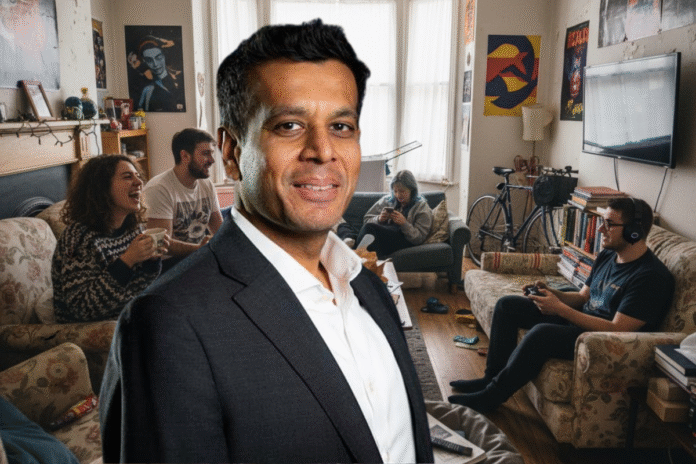Nine in 10 young renters say they’ve endured a “housemate horror”, according to new research by Barclays, with frustrations over dirty dishes, noise and vaping driving Millennials and Gen Zs to seek their own space.
The study found that 88% of flat-sharers have clashed with housemates over shared-space etiquette, yet only a third admit they might be part of the problem.
Traditional gripes such as late-night noise (30%) and dirty dishes left in the sink (29%) remain the biggest irritants, but modern living has created a new generation of “nightmare” cohabitants.
Almost one in five renters (19%) report living with a “Nocturnal Gamer”, whose late-night sessions keep others awake, while 17% cite “Persistent Puffers” who vape or smoke indoors.
Others complain about “WhatsApp Micromanagers” who bombard group chats with passive-aggressive reminders and “Serial Snappers” who treat communal areas as backdrops for social media content.
SHARED-LIVING FATIGUE
The impact of shared-living fatigue is clear: nearly two-thirds (62%) of young renters plan to leave their current house-share within a year, and 68% say the experience has made them more determined to buy their own home.
Two-thirds would even pay more to live alone, while almost half (45%) have already begun researching mortgages or first-time buyer schemes.
Financial tensions are also a factor. Nearly two-thirds (64%) of those surveyed say “horror housemates” have cost them money through unpaid bills or damages, forcing them to cover an average of £553 extra each year.
COPING STRATEGIES
In response, 86% admit to adopting passive-aggressive coping strategies – from silent treatments to pointedly rearranging a housemate’s mess.
Parents share the frustration. Over half (51%) of parents with house-sharing children worry about their offspring’s living arrangements, with more than a fifth (22%) preferring to help them buy a home rather than continue renting.
Barclays says these dynamics are accelerating interest in family-assisted mortgage products. The bank’s Mortgage Boost scheme allows relatives or friends to join a mortgage application using their income – helping young buyers borrow more without requiring an upfront cash gift.
As shared-living tensions grow, Britain’s young renters appear increasingly ready to swap messy kitchens and late-night gaming for the security of a home of their own.
RESPECTFUL COMMUNICATION

Dr Becky Spelman, Psychologist and Founder of Private Therapy Clinic, said: “Even the best friendships are tested when you live together.
“Sharing a home can be both comforting and challenging, because our different routines, habits and emotional needs inevitably collide.”
She added: “Small things can start to feel personal, when really, they’re often about people protecting their own comfort or managing stress. The healthiest way to navigate these moments is through open, respectful communication rather than silence or resentment.
“Modern house-sharing can be intense, but it also helps us learn patience, empathy and boundaries. It’s completely normal to crave independence or dream of your own space; that’s not a rejection of your friendships, it’s a natural step in adult life and personal growth.
RITE OF PASSAGE
Jatin Patel (main picture, inset), head of mortgages, savings and insurance at Barclays, said: “House-sharing is a rite of passage for many young adults, but the reality of splitting bills, chasing rent payments and covering extra costs due to housemate issues is making young renters think more seriously about their own financial future.
“It’s no surprise so many renters want to explore how they could buy a place of their own, but saving for a deposit is the main barrier they face.”
He added: “While families often want to help, they can’t always afford to gift money, so Barclays Mortgage Boost bridges that gap, helping first-time buyers turn aspirations about ‘one day owning a place’ into a real plan for home ownership.”



